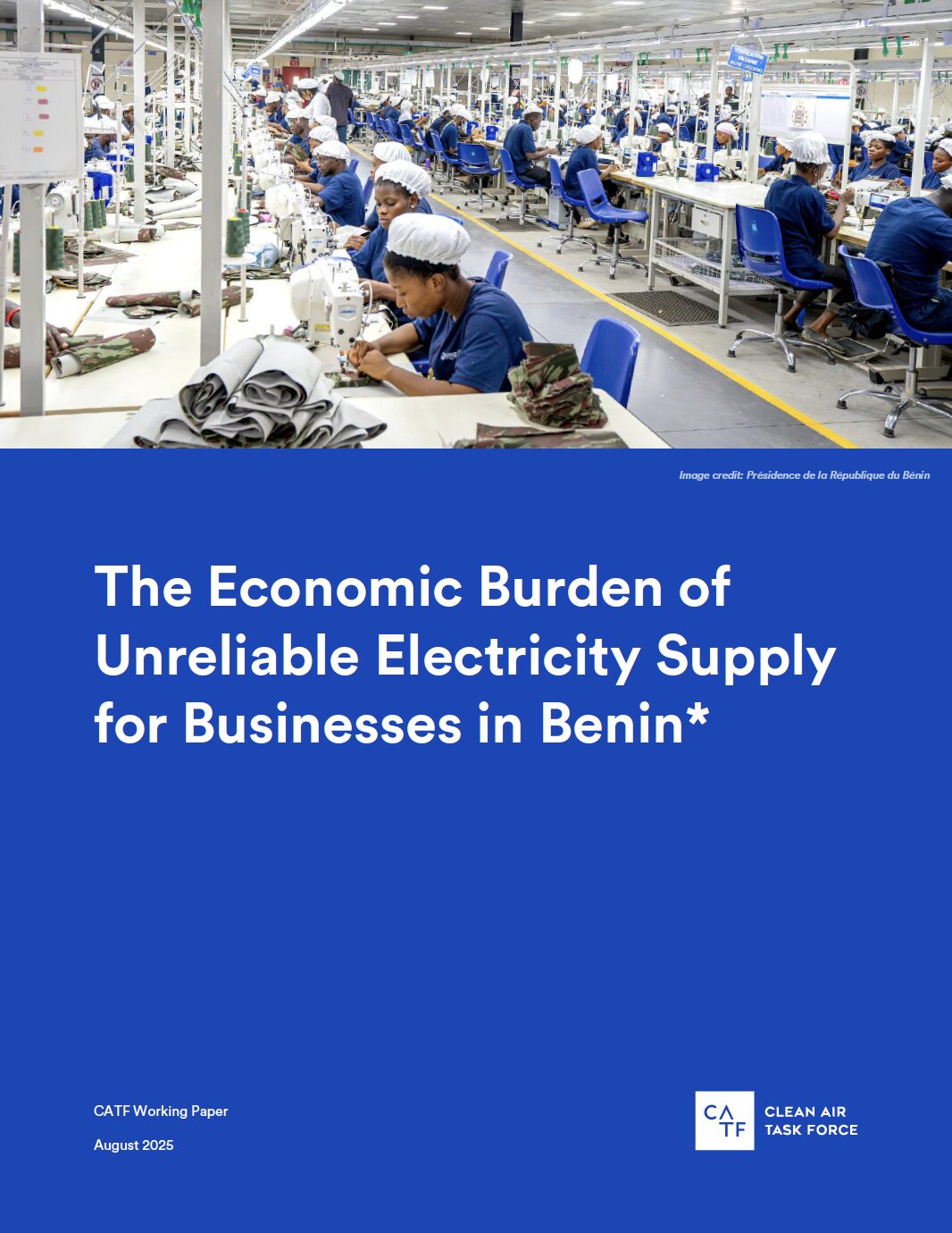The Economic Burden of Unreliable Electricity Supply for Businesses in Benin

Executive Summary (English) | Executive Summary (French)
Businesses in African countries not only face challenges with accessing electricity, but also struggle with the cost and reliability of power supply. To cope with frequent power outages and voltage fluctuations, these businesses often spend extra money on power generators, alternative energy sources, and voltage stabilizers. These additional costs can be a financial burden for businesses and are often overlooked when considering total electricity expenses.
Our study focuses on assessing the economic and electricity burden implications of unreliable power supply for businesses in developing countries, using Benin as a case study. We found that these extra costs make up a significant portion of businesses’ electricity expenses in Benin, with the main contributor being the expenses associated with running power generators. This places a heavy burden on many businesses, especially those operating in the informal sector, with business owners, home businesses, and production activities.
Our findings indicate that failure to account for the additional electricity costs associated with defensive strategies results in underestimating the true financial burden of electricity expenditure for businesses. Consequently, this oversight may lead to ineffective approaches in addressing electricity affordability. Our analysis also provides evidence on the factors affecting the electricity burden for businesses.
It is crucial to address these extra electricity costs and identify businesses experiencing an electricity burden in order to develop targeted approaches for more effective alleviation measures.


